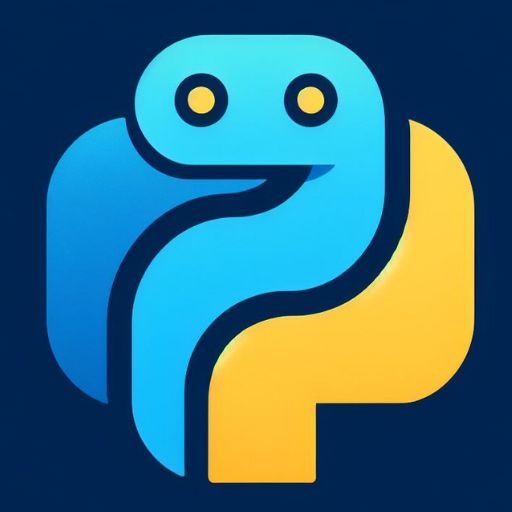
Python is a versatile and powerful programming language that has gained immense popularity over the years. It's beginner-friendly, yet it can be used for a wide range of applications, from web development to data science and machine learning. If you're looking to learn Python or improve your skills, there's no shortage of learning resources available. However, not all books are created equal. In this article, we'll explore the top 10 books that can help you master Python from the ground up.
Table of Contents
- "Learn Python the Hard Way" by Zed A. Shaw
- "Python Crash Course" by Eric Matthes
- "Automate the Boring Stuff with Python" by Al Sweigart
- "Python Cookbook" by David Beazley and Brian K. Jones
- "Fluent Python" by Luciano Ramalho
- "Effective Python: 59 Specific Ways to Write Better Python" by Brett Slatkin
- "Python for Data Analysis" by Wes McKinney
- "Dive into Python 3" by Mark Pilgrim
- "Learning Python" by Mark Lutz
- "Python Tricks: A Buffet of Awesome Python Features" by Dan Bader
1. "Learn Python the Hard Way" by Zed A. Shaw
This classic book takes a unique approach to teach Python. Zed A. Shaw's "Learn Python the Hard Way" emphasizes practice and repetition to reinforce your understanding of Python. With hands-on exercises and clear explanations, it's an excellent choice for beginners who prefer a more traditional learning approach.
2. "Python Crash Course" by Eric Matthes
As the title suggests, "Python Crash Course" is designed to get you up to speed quickly. Eric Matthes covers the basics of Python programming and then delves into web development, data visualization, and game development. This book is perfect for those who want to explore different applications of Python and start building real projects early on.
3. "Automate the Boring Stuff with Python" by Al Sweigart
Al Sweigart's "Automate the Boring Stuff with Python" is a must-read for anyone who wants to use Python for practical tasks. This book demonstrates how Python can automate repetitive tasks, making it an invaluable resource for professionals and hobbyists alike. From web scraping to working with spreadsheets, you'll learn how to save time and effort with Python scripts.
4. "Python Cookbook" by David Beazley and Brian K. Jones
For those who have a basic understanding of Python and want to deepen their knowledge, the "Python Cookbook" is an excellent choice. This book contains a collection of code recipes for various Python tasks, such as text processing, network programming, and concurrency. It's a great resource for developers who want to learn best practices and idiomatic Python coding.
5. "Fluent Python" by Luciano Ramalho
"Fluent Python" is aimed at Python developers who want to write more elegant and efficient code. Luciano Ramalho dives into Python's advanced features and demonstrates how to use them effectively. If you want to become a proficient Python programmer and understand the language's nuances, this book is a must-read.
6. "Effective Python: 59 Specific Ways to Write Better Python" by Brett Slatkin
Brett Slatkin's "Effective Python" provides concise and practical advice on writing Pythonic code. The book presents 59 specific techniques to improve your code's readability and performance. Whether you're a beginner or an experienced developer, you'll find valuable insights in this book.
7. "Python for Data Analysis" by Wes McKinney
As Python continues to gain popularity in the data science community, "Python for Data Analysis" is a vital resource for aspiring data scientists. Wes McKinney, the creator of the pandas library, introduces you to data manipulation, cleaning, and analysis using Python. If you want to work with data in Python, this book is a great starting point.
8. "Dive into Python 3" by Mark Pilgrim
"Dive into Python 3" is a comprehensive guide to Python 3 for experienced programmers. It covers various aspects of Python, including data types, control structures, and object-oriented programming. The book also explores Python's Unicode support and advanced topics like decorators and metaclasses. If you're already familiar with programming and want to transition to Python 3, this book is an excellent choice.
9. "Learning Python" by Mark Lutz
"Learning Python" is a thorough and well-structured book for beginners. Mark Lutz covers the fundamentals of Python, from basic syntax to more advanced topics like file handling and GUI programming. With its comprehensive coverage and practical examples, this book is an excellent starting point for anyone new to Python.
ns=1449355730&linkId=c0ed24e01a7ae4ab3367c9890fa41b30&show_border=true&link_opens_in_new_window=true" style="height: 240px; width: 120px;">10. "Python Tricks: A Buffet of Awesome Python Features" by Dan Bader
"Python Tricks" offers bite-sized tips and tricks to enhance your Python skills. Dan Bader presents concise and practical examples of Python code that can boost your productivity. This book is suitable for all levels of Python developers who want to write cleaner and more efficient code.
Conclusion
Learning Python can be an exciting and rewarding journey. Whether you're a complete beginner or an experienced programmer, the right book can make a significant difference in your learning experience. The top 10 books listed above cover a wide range of Python topics, from the basics to more advanced concepts, catering to various learning styles and preferences. Choose a book that aligns with your goals, and dive into the world of Python programming.





0 Comments